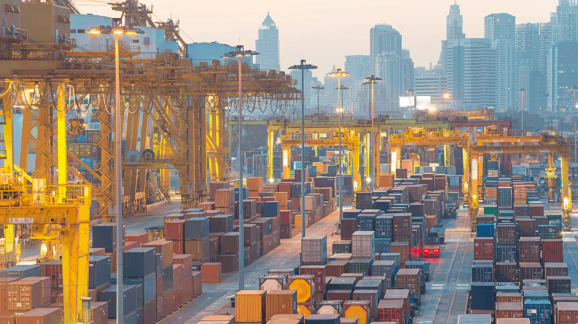The GOP is souring on free trade

It is no secret that the median voter is either unaware or doesn’t care how most policies actually work, from immigration to health care policy. One of the biggest disconnects is on trade.
In a recent rally in New Hampshire, former president Donald Trump claimed that the United States took billions in value back from the Chinese and increased American prosperity due to his tariffs, and the crowd cheered. On top of that, Trump has made claims about supporting a 10 percent tariff rate on all goods and a 60 percent flat tariff on China. Both would be disastrous.
The Trump era GOP has shifted from the relatively free trade policies of previous iterations of the GOP towards a more protectionist and isolationist view. Currently, support for free trade in the GOP is the lowest it’s been in any time recorded with only 44 percent saying free trade will have a positive impact on the economy. That compares to 78 percent GOP support for free trade just a few years ago, in 2020.
Contrast that to the typical economist’s view of trade. Eighty-five percent agree that free trade is a positive ideal that we should strive towards. The ability to trade with individuals in other countries allows for immense gains in overall prosperity and leads to overall quality of life increasing. We see this time and time again, with places like the Hong Kong and Singapore seeing their immense prosperity linked largely to free trade policies.
The question then shifts into why the public views trade differently from the economist? The average voter is unaware about how deeply trade affects their daily life.
When the economist Joseph Schumpeter questioned whether capitalism could survive, one of the primary things he pointed to was disconnect between the consumer and the product in which they consumed. As people’s lives become better and they use more things on a daily basis, they have less knowledge about the items they are consuming. For lack of better words, they do not know all the meticulous steps it takes to make a pencil.
Economic gains are nice, but it means little to the factory worker who just lost their job. There is no easy answer for how to help people hurt by trade, but it is important to see the bigger picture.
So picture this: Economic gains mean that your children do not have to work in a dangerous factory, goods that were once considered luxury items that only the richest could afford become common use, and the overall quality of life of hundreds of millions increases.
While the goals of many policies the GOP is pursuing seem benevolent, we should be judging policy based on its results, not intentions. The benefits from trade are immense and will only increase in importance as time progresses. It may be important to address issues for individuals adapting to trade, but solving that problem does not have to include limiting access to international markets and prosperity.